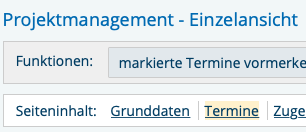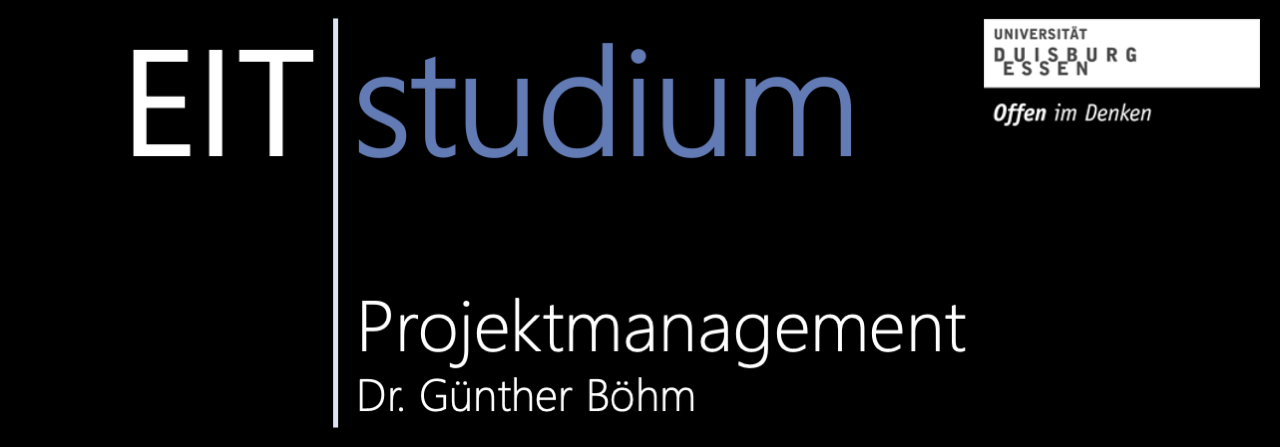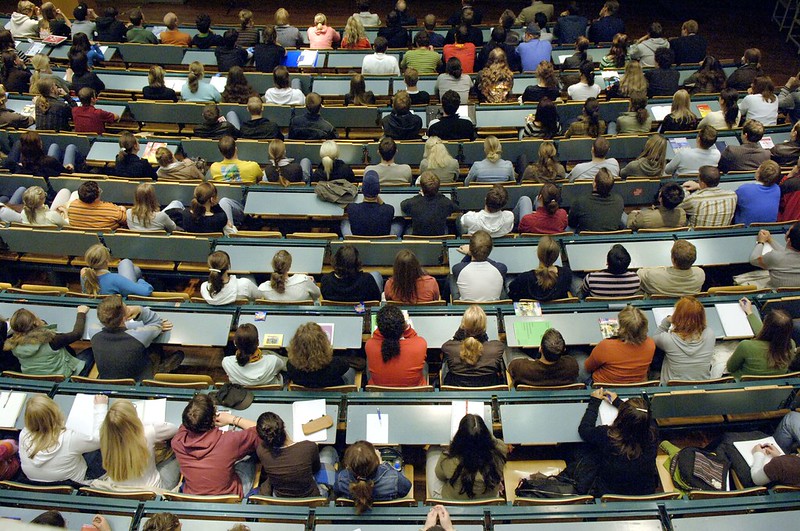- Lehrende(r): Ali-Sercan Basyurt
- Lehrende(r): Felix Brünker
- Lehrende(r): Sünje Clausen
- Lehrende(r): Jennifer Fromm
- Lehrende(r): Lennart Hofeditz
- Lehrende(r): Anna-Katharina Jung
- Lehrende(r): Milad Mirbabaie
- Lehrende(r): Gautam K. Shahi
- Lehrende(r): Stefan Stieglitz
Suchergebnisse: 1618
Eine neue Version des Moodle-Kurses ist hier zu finden: https://moodle.uni-due.de/course/view.php?id=47141
- Lehrende(r): Melanie Beese
- Lehrende(r): Caroline Böning
- Lehrende(r): Christine Enzenbach
- Lehrende(r): Stefanie Jahn
- Lehrende(r): Bernd Henning Krake
- Lehrende(r): Sarah-Christin Prange
- Lehrende(r): Jan Strobl
- Lehrende(r): Mona Wallbaum
Hinweis zur Anmeldung:
Bitte nutzen Sie das Zulassungsverfahren des LSF, um sich für diese Veranstaltung anzumelden. Dort erhalten Sie das Passwort für diesen Moodle-Kurs.
Link zur Veranstaltung im LSF: https://campus.uni-due.de/lsf/rds?state=verpublish&status=init&vmfile=no&publishid=352212&moduleCall=webInfo&publishConfFile=webInfo&publishSubDir=veranstaltung
| Beschreibung: |
Supply Chain Management (SCM) bezeichnet die Planung und Steuerung von unterschiedlichen Unternehmen und Abteilungen, die an der Produktion von Produkten bzw. Dienstleistungen beteiligt sind. SCM erstreckt sich von der Beschaffung von Rohmaterialen, Produktion von Halb- und Fertigfabrikaten und bis zur Auslieferung an die Kunden. In dieser Vorlesung werden quantitative Modelle und Methoden des SCM vorgestellt. |
| Lernziele: | Die Studierenden
|
| Literatur: |
|
| Vorleistung: | Kenntnisse in Operations Research |
| Infolink: | www.uni-due.de/pom |
| Bemerkung: | Prüfungsanforderungen:
|
- Lehrende(r): Jutta Geldermann
- Lehrende(r): Erik Pohl
Kursbeschreibung:

- Lehrende(r): Adrian Dörnbach
- Lehrende(r): Dominik Ehring
- Lehrende(r): Stefan Esser
- Lehrende(r): Yixin Huang
- Lehrende(r): Christine Kocks
- Lehrende(r): Johannes Kubacki
- Lehrende(r): Janosch Luttmer
- Lehrende(r): Arun Nagarajah
- Lehrende(r): Sebastian Sonntag
Begleitender Moodle Kurs zum Blockseminar 05.09.-08.09.2022
- Lehrende(r): Oliver Bidlo
- Lehrende(r): Agnes Lamacz
- Lehrende(r): Malte Winckler
Die Veranstaltung findet mit digitalen Lerninhalten im Moodle-Raum statt. Dort werden Semesterplan, Referate, Stehgreif-Übungen sowie Projekt-Entwicklungen und Feedback vermittelt.
Im Dialog werden die Teilnehmenden in der Suche und Entwicklung einer eigenen künstlerischen Position unterstützt und begleitet. Die Veranstaltung hat den Zweck, die individuelle künstlerische Praxis im Austausch (per Video, Telefon oder Text) dialogisch zu erläutern und diese auch im Entstehungsprozess kritisch-konstruktiv zu kommentieren. Der Diskurs unter den Teilnehmenden trägt in wechselnden Konstellationen zur Reflektion über eigene und fremde Ideen und Konzepte bei und trainiert gleichzeitig die Vorbereitung auf die Bachelor- oder Masterprüfung. Zudem ist es möglich, eine freie Arbeit (Konzeptuelle Räume) zu entwickeln.
Zum ersten Termin (21. April) soll eine vorläufige Idee oder eine mögliche Inspiration mit Text & Bild in einem max. 1-minütigen (!) Video im Moodleraum vorgestellt werden.
- Lehrende(r): Susanne Weirich
The lecture will focus on systematic planning and controls of projects. Genuine leadership principles, communication skills and team building point out the necessary qualifications of the project manager/members. Sponsorship by Top-Management and Organizational Change-Management are critical project success factors and are part of the lecture as well.
Lernziele
Die Studierenden kennen die Grundlagen des Projektmanagements bzgl. der technischen Kompetenzen und der Verhaltenskompetenzen. Sie sind in der Lage, die Bedeutung des Professionellen Projektmanagements in den umfassenderen Kontext des Managements von Organisationen und der erfolgreichen Umsetzung von Unternehmensstrategien einzuordnen und zu bewerten.
The students know the basics of project management concerning the technical and behavioral competence elements. They can classify the impact of Professional Project Management within the context of management of organizations and successful implementation of corporate strategies and evaluate those.
Blockveranstaltung: ab dem 18. November bis zum 10. Dezember 2020 immer mittwochs und donnerstags von 15:00 bis 18:00 Uhr, online
(die Veranstaltung wurde aufgrund von SARS-CoV-2 komplett auf digitale Inhalte umgestellt)
Um sich in den Moodle-Kurs einzuschreiben, müssen Sie sich zunächst online über das LSF-Portal der Universität anmelden:
- Öffnen Sie das LSF-Portal in Ihrem Browser.
- Wählen Sie "Termine" (siehe Bildschirmfoto, gelb markiert)

- Wählen Sie "jetzt belegen / abmelden" (siehe Bildschirmfoto, gelb markiert)

- Melden Sie sich mit Ihrer Universitäts-Benutzer-ID und Ihrem Kennwort an.
- Folgen Sie den Anweisungen auf dem Bildschirm
- Spätestens eine Woche vor Beginn der Veranstaltung werden Sie anhand der LSF-Belegungsdaten mit Hilfe der Moodle-Funktion "Massen-Einschreibung" in den Kursraum eingeschrieben.
- Sollten Sie die Registrierung in LSF erst nach dem Beginn der Vorlesungen, also nach dem 2.11.2020 durchgeführt haben, dann senden Sie von Ihrem Universitäts-Account eine E-Mail an Dr. Buß, in der Sie um Einschreibung in den Moodle-Kurs mit der ID 23394 bitten..

- Lehrende(r): Günther Böhm
Moodle Kurs zum Projektseminar Planung und Durchführung einer verhaltensbezogenen Präventionsmaßnahme (Modul 9, AGB Master)
Hier finden Sie alle relevanten Informationen.
Die Veranstaltung findet jeweils donnerstags von 10:15-11:45 in Raum S06 S03 A06 statt.
Ansprechpartnerin: Dr. Lea Ueberholz
Raum: S06 S03 A06
Tel: 0201 183 33270
Mail: lea.ueberholz@uni-due.de
Sprechstunde nach Vereinbarung
- Lehrende(r): Lea Ueberholz
Dies ist der Moodle-Kurs zum studentischen Präventionsprojekt "Prokrastination" im Rahmen des Projektseminars "Planung
und Durchführung einer verhaltensbezogenen Präventionsmaßnahme" im Master Psychologie, Arbeit Gesundheit und Bildung.
- Lehrende(r): Sarah Anna Haiduk
- Lehrende(r): Magdalena Jansen
- Lehrende(r): Lea Ueberholz
- Lehrende(r): Yanislava Yaneva
Hier finden Sie den Moodle-Kurs zum Proseminar Analysis bei Agnes Lamacz-Keymling.
- Lehrende(r): Agnes Lamacz
Kleidung hatte in der frühneuzeitlichen Gesellschaft eine immense soziale Bedeutung: Die nach Ständen organisierte Gesellschaft spiegelte sich in spezifischer Kleidung wieder, ein Adeliger trug andere Kleidung als ein Bauer und auch der Klerus unterschied sich von Laien durch sein Gewand. Mit Kleidung wurde demnach Gruppenzugehörigkeit hergestellt und dargestellt, mit Kleidung konnte sie aber auch unterlaufen werden, was als Gefährdung der gesellschaftlichen Ordnung galt. Für das Tragen von Männerkleidern konnte man als Frau hart bestraft werden. Als Mann sorgte man in Frauenkleidung für Gelächter und Unterhaltung im Karneval, ansonsten erntete man dafür Spott. Kleider waren deshalb nicht nur Alltagsgegenstände, sondern unterlagen genauen Vorschriften und Regelungen.
Stoffe und Kleider wurden aber nicht nur getragen, sondern mussten hergestellt, verkauft, erneuert, wiederverkauft oder weitergegeben werden, sie waren Teil eines sich langsam globalisierenden Marktes und wurden zum Konsumgut. Im Laufe der Epoche entwickelten sich geschlechtsspezifische Moden, deren Wandel sich mehr und mehr beschleunigte. Im Proseminar werden wir der Frage nachgehen, wie Kleidung und soziale Ordnung in der Frühen Neuzeit zusammenhingen und wie sich dies im Laufe der Epoche verändert hat.
Das Proseminar ist für Studierenden aller BA-Studiengänge im Fach Geschichte gedacht, bevorzugt im dritten und vierten Semester. Abgeschlossen wird dieses Proseminar mit einer schriftlichen Hausarbeit im Umfang von etwa 15 Seiten.
Das Proseminar ist als Moodle-Kurs und Videoveranstaltung (Big Blue Button) organisiert. Die einzelnen Sitzungen finden immer donnerstags zwischen 10 und 12 Uhr statt und werden unter meiner Leitung von mehreren studentischen Expertengruppen vorbereitet. Alle Teilnehmenden werden einer solchen Kleingruppe zugeteilt und sind verpflichtet darin aktiv mitzuarbeiten.
Die Grundlage der Arbeit bilden von Woche zu Woche jeweils ein oder zwei Quellen, die uns über die Bekleidungsgewohnheiten von Menschen in der Frühen Neuzeit informieren. Alle Teilnehmenden schauen sich diese unterschiedlichen Bild- und Textquellen im Vorfeld genau an und versuchen ihren Sinn zu verstehen. Meistens werden kurze Informationen bereitgestellt, die das Verstehen erleichtern.
Jeweils zwei oder drei Expertengruppen lesen darüber hinaus einschlägige wissenschaftliche Beiträge (einen Aufsatz oder ein Buchkapitel), die ich ihnen zuvor im elektronischen Semesterapparat zur Verfügung stelle. Die Expertengruppen sind verpflichtet, mit mir über den Fortgang ihrer Arbeit spätestens eine Woche vor der Sitzung per Mail oder in einer Video-Sprechstunde zu kommunizieren. Sie bringen ihr zusätzliches Wissen in die jeweilige Sitzung aktiv ein, indem sie die Kernaussagen des Beitrags in einem zehnminütigen Referat präsentieren und sich außerdem immer dann in die gemeinsame Quellenanalyse einschalten, wenn das dem Prozess des Verstehens dient.
Wenn
Sie als Mitglied einer solchen Expertengruppe „dran sind“, müssen Sie Ihre
Kamerafunktion einschalten, damit Sie für alle Teilnehmenden sichtbar sind.
Anonyme Kommunikation funktioniert nach meiner Erfahrung nämlich nicht.
Ansonsten bitte ich Sie, Ihre Mikrofone (und Kameras, wenn Sie mögen) nur dann
einzuschalten, wenn Sie zur Diskussion beitragen wollen.
- Lehrende(r): Stefan Brakensiek
Moodle Kurs zum Proseminar "Augustus und Tiberius" im Wintersemester 19/10. Dienstags von 10 bis 12. R12 R06 A79
- Lehrende(r): Felix Schulte
Dies ist der Moodle-Raum für das Proseminar "Proseminar: Konflikte ohne Ende? Kaisertum und Papsttum im 12. Jahrhundert" im SoSe 2022 von David Passig.
- Lehrende(r): David Passig
Dieser Moodle-Kurs dient als Prüfungsraum der Durchführung von mündlichen online-Prüfungen der Veranstaltung Dynamisches Automobilmanagement im Wintersemester 2020/21.
Der Moodle-Kurs dient zur Information, Organisation, Vor- und Nachbereitung der monatlich stattfindenden Treffen im Zusatzkurs "PSYRCLE".
Gemeinsam sollen ausgewählte Themen rund um das Fach Psychologie einerseits möglichst anwendungsbezogen und praxisnah thematisiert werden, andererseits aber auch Raum für etwas grundsätzlichere ("philosophischere") Fragen im Zusammenhang der Psychologie bestehen.

- Lehrende(r): Mike Lüdmann
- Lehrende(r): Marie Luise Wilmers
Put the Kettle on: Tea and other Hot Drinks in British Culture and Literature
Well into the mid-seventeenth century, everybody in England – men, women and children – drank beer. Beer was the standard drink because drinking water was not particularly safe, especially in cities. The transition from beer to hot drinks such as coffee, chocolate and, above all, tea in the British Isles is a remarkable phenomenon. We shall trace this development from its beginnings in the seventeenth century.
The rise of hot drinks was intimately connected with global trade, colonialism, slavery (no hot drinks without sugar, no sugar without slaves) and the opium trade (Chinese tea was exchanged for opium produced in British India). New habits such as coffee- and tea-drinking were taken over from various cultures of the Orient, especially the Ottoman Empire and China. To drink coffee or tea provided a physical connection with the Orient. There is an interesting connection between coffee, journalism and the development of the public sphere as the earliest newspapers were both written and read in London´s coffee houses. In the eighteenth century, the tea table became a site of middle-class domestic sociability. The etiquette of preparing and taking various drinks was intimately tied to evolving gender roles. Tea still retains a huge significance in the culture of British everyday life.
This seminar will include some hands-on experimentation. We will also prepare and taste some of these drinks, such as seventeenth-century style hot chocolate (you may be surprised by some of the ingredients listed in old recipes), various types of tea etc.
There will be a Moodle room. A reader and other material will be made available there. You will receive your Moodle password via e-mail.
Requirements: Good preparation for each session, active participation. Also written work according to your particular Studienordnung. Also, bring a mug.
Just in case your application is rejected by the LSF system: If you want to do this course because you are genuinely interested, you will be most welcome, no matter what LSF says. Please get in touch with claudia.hausmann@uni-due.de who will enrol you manually. The worst that might happen to you is that you cannot do a Leistungsnachweis if you lack the formal requirements.
- Lehrende(r): Christoph Heyl
Dieser Moodle-Kurs dient dem Austausch und der Zusammenarbeit innerhalb der QMS-AG.

- Moderation: Marcus Lamprecht
- Moderation: Frederic Neuß
- Moderation: Heide Schmidtmann
Les classiques du classicisme. Les classiques du romantisme. Quelques classiques de la modernité. Y a-t-il des classiques contemporains ? L’axe chronologique de ce cours permet d’approfondir une question fondamentale de l’historiographie littéraire (« Qu’est-ce qu’un classique » ?) tout en proposant une vue d’ensemble – du moins par bribes – des littératures de langue française.
Die Vorlesung findet überwiegend in französischer Sprache statt. Die zu lesenden Texte sowie Arbeitsaufträge zur Vorbereitung der einzelnen Sitzungen werden Ihnen über Moodle zur Verfügung gestellt. Das Passwort teile ich Ihnen in einer Rundmail eine Woche vor dem Beginn der Vorlesung mit.
- Lehrende(r): Stephanie Bung
« Les classiques du romantisme » : Au début de ce cours, nous nous pencherons sur la contradiction qui semble être inhérente à cette expression. Si le romantisme français s’est construit à l’encontre du classicisme français, comment peut-on parler d’un « auteur romantique classique » ? Cette question nous servira de point de départ pour faire le tour des significations multiples de cette notion. Ensuite, nous y reviendrons en passant du XIXe au XXe siècle : Quels sont les classiques de la modernité ? À la fin du semestre, nous déboucherons sur la question suivante : Y a-t-il des classiques contemporains ? Cet axe chronologique permet d’approfondir une problématique fondamentale de l’historiographie littéraire (« Qu’est-ce qu’un classique » ?) tout en proposant une vue d’ensemble – du moins par bribes – des littératures de langue française du XIXe au XXIe siècle.
Die Vorlesung findet in deutscher und in französischer Sprache statt. Die zu lesenden Texte sowie Arbeitsaufträge zur Vorbereitung der einzelnen Sitzungen werden Ihnen über Moodle zur Verfügung gestellt. Das Passwort teile ich Ihnen in einer Rundmail eine Woche vor dem Beginn der Vorlesung mit.
- Lehrende(r): Stephanie Bung